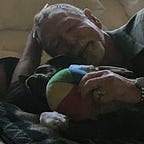Summonsed (yes, that is an actual word)
So, I was “summonsed” (yes, that is a word) to jury duty at one time. I went in naively expecting drama and tension, and what I got was quite different. For a large part, the selection process is, well, pretty boring (I can’t speak to actually sitting through a trial because that didn’t happen). But the chairs in the juror’s room are amazingly comfortable, and the wifi is actually pretty good. The coffee, on the other hand, was even worse than the staff warned. But the atmosphere was chill, they worked hard to keep us all informed, and while there was a lot of waiting around, it felt, overall, purposeful. That was the juror’s room. Then I was called two different times, in a group, to go up to a court and participate in the selection process.
Voir dire revolves around the concept of telling the truth under oath. It’s Anglo-Norman, for crying out loud. Basically, the prosecution and the defense vet the jury by asking a bunch of questions to try to get a feel for who they want and who they don’t want. Sort of a more sophisticated version of choosing sides for dodgeball, evolving into something more like a game of chicken, or poker, as each attorney uses up their last challenges, trying to shape the jury to be sympathetic to their respective side. After two selection experiences, I’m hardly an expert, but there were consistencies across those two experiences:
- Can you support a law you don’t agree with?
- Do you understand the concept of reasonable doubt?
- Are you bringing any prejudices with you into this court?
While the first two sorts of questions met with a fair amount of confusion (in no small part because of the way the counselors presented them), it was the last one that elicited surprises; we may have gone through full airport-like security to get into the courthouse, surrendering all weapons, but there were plenty of axes to be found grinding once the jurors started answering questions: there was the juror/lawyer whose native american family had seen their share of abuse. The asian juror who’d been mistaken for someone who didn’t speak english — 30 years ago. Many jurors who’d had their property stolen and felt they would tend to convict anyone charged with such a crime regardless of the evidence or presence of reasonable doubt. The Vietnam-era conscientious objector who still needed to vent. The elderly juror who turned a question about a lost tourist couple into an story about a driving lesson for their niece, because that’s what was on their mind at the time. The people who felt compelled to declare their position and the people who went to great lengths to avoid having a position, even when pressed.
All up, the process impressed me by how intensely personal it was. This wasn’t the grim set of folks from Twelve Angry Men, this was a bunch of normal, conflicted, vulnerable people who’d been pulled into the court system to decide the fate of someone, and many of them were uncomfortable with that prosprect. Some of it was interesting, some of it boring and even tedious, but if you took it as an honest cross-section of our community, it was quite a reality check.
During the process, I discovered that there is no provision in our legal system for allowing a person to volunteer for jury duty. It precludes the advent of the “professional juror”, and it’s a pretty effective means of guaranteeing a certain amount of randomness and, so the theory goes, a lack of collective bias.
Make your case and then throw the dice.
